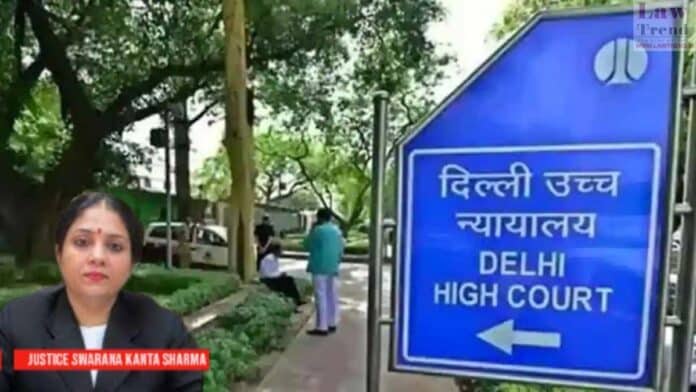A prisoner cannot be made to suffer due to the inadequacy of policies and a firm attitude by the court was needed to “awaken the relaxed authorities from their slack approach” towards prisoners’ fundamental rights, the Delhi High Court has observed.
The court made the observations while issuing a slew of guidelines for quantifying and assessing the compensation to be paid to a prisoner for injuries sustained while working in jail.
In case a convict suffers work-related amputation or a life-threatening injury, the court said, the jail superintendent will be duty-bound to inform the concerned jail inspecting judge within 24 hours of the incident. A three-member committee comprising Director General (Prisons) of Delhi, medical superintendent of a government hospital and secretary of Delhi State Legal Services Authority (DSLSA) of the concerned district will be constituted to assess and quantify the compensation to be paid to the victim, it said.
The court also said that interim compensation will be provided to the injured prisoner by the authorities.
This arrangement will remain in place until the necessary guidelines are formulated or rules are made or amended under the Prison Act, 1894 by the wisdom of the Parliament of India.
The high court clarified that these guidelines will be applicable only in the case of amputation or any other life-threatening injury sustained by the convict during work.
Justice Swarana Kanta Sharma said while this judgement does not intend to create new rights for prisoners, it expresses and reiterates the recognition of the right to equality, right to life and human dignity of a prisoner who has been convicted.
“The plight of the imprisoned in a democracy sheds light on the state as to how should states care for them since very few care for the imprisoned. The attitude of the majority towards the imprisoned — undertrials or convicts — is not very positive and those who speak on behalf of prisoners are at times considered callous towards victims of crime,” the court said in its 23-page judgement.
It said a prisoner cannot be made to suffer due to the inadequacy of policies that have failed to consider a particular eventuality and the judicial consciousness must contribute to reach every individual and provide them remedies in law even in cases where it may seem that none are available.
“This Court also holds the view that a firm attitude by the Court was needed to awaken the relaxed authorities from their slack approach towards entitlement of prisoners and their fundamental rights,” it added.
Prisons are correctional institutions and they should be known as such and fundamental rights should not remain on paper. It is the duty of courts to ensure that they become living law and in practicality assist, help and guide the citizens, the court said.
It noted that at present, neither the Delhi Prisons Act of 2000 nor the Delhi Prison Rules of 2018 say anything about what happens to the lost time and wages of the convict rendered incapable of working after an accident.
The court’s verdict came while deciding a plea by murder convict Ved Yadav, represented through Vishesh Wadhwa, seeking compensation after he lost three fingers of his right hand while working in Delhi’s Tihar jail.
The convict, serving life imprisonment, was taken to AIIMS for providing functional prosthesis but the hospital authorities said that they only had cosmetic gloves.
Thereafter, he checked with the jail superintendent the status of his application for grant of compensation and providing functional prosthesis at the State’s expense, and was informed that it had been returned without stating any reasons.
After this, the convict approached the high court.
Justice Sharma said the injury and disability suffered by this prisoner cannot be assessed to be lesser in pain and suffering compared to a free citizen and the pain of an injury cannot be different for a convict and a free citizen.
“The court has to hear the voiceless and feel and treat the pain and suffering suffered by the convict not as pain of a prison inmate but as that of a human being. Under the constitutional system of India, the courts have always stood guard and have acted as refuge for people who may be helpless, outnumbered, or may stand in position of power imbalance.
“The Constitution of India does not permit distinction in such cases and the judicial and moral conscience of the court advances the principles of the Constitution. The prisoners who are separated from the society and the family due to the court’s sentence are often unseen by the general public and their family,” she said.
The court said that a copy of the judgement be forwarded by the registrar to Director General (Prisons), secretary of DSLSA of all districts in Delhi, and secretaries of Union health ministry and Delhi’s Department of Health and Family Welfare for taking note of its contents and ensuring compliance.




